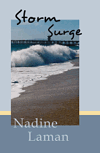Besides having a basic understanding of the English language (assuming an English language market is the target), a sense of storytelling is required to write fiction.
We begin storytelling as children and quickly learn what holds an audience's attention. We improve our skills as our audience matures (and peers are less polite to listen if bored) and develop a sense of when we have their imagination captured and when we are losing them. Without real-time feedback, some of us learn to take that skill to pen and paper.
Writers write right. A story has a beginning, middle, and end. Nothing new about that. But where to begin?
I read mss where the character's entire life is reviewed for several pages - or more. While it is a common writing exercise to write character sketches, that is not the beginning of a story. If I remove all the pages of personal history from the ms, and start where the action begins, that is the real beginning of the story.
The beginning is the opening scene. Often a short set-up, and I mean short, a few lines to set the location, perhaps the time period or time of day or season, and the character who will move when you shout "action." But if the season (for example) has no importance, then leave it out. If the snow storm is important to what happens, perhaps a contributor to what happens, then put it in. Otherwise, mention it when it matters or not at all.
(I'm a bit off the grid with my literary fiction, but in Kathryn's Beach, nature mirrored her emotions since she denied them during her exile. In KB the 'moods' of the weather and the ocean mattered. As she became more 'alive' in High Tide and Storm Surge, those items were less prevalent. This is what I mean about them serving a purpose or leave it out.)
Very soon a conflict must arise and the main character set upon a quest toward conflict resolution. That is the beginning, not way before the beginning when the 42 year old character was growing up - year after year of history.
At some point writers mature, and move away from the need to write full character sketches, and simply imagine the character and set about the business of writing. I think there is a danger for inexperienced writers to flesh out too much of their character before writing.
I've discovered when they do excessive fleshing, they know things about the character that don't get shared with the reader. When that happens, the story is disjointed. Things happen that seem to the reader out of character, whereas to the writer (because of their mass information about the character) that item makes sense.
Some say all the prewriting that is stuffed in the beginning of the ms is the prologue. They might even set it apart and call it the prologue.
While the practice of prologues is popular in many countries, most readers and aspiring writers will notice it is lacking in American fiction writing. Keep that in mind if the plan is to enter the American market.
In America, the prologue is sometimes used by self-published writers because of a need to be better understood and in some cases, a defense of their work. I respect the prologue where it is the local custom, but honestly I rarely read them. I expect the work to stand on its own merit.
The middle begins tomorrow.
Thursday, January 28, 2010
Subscribe to:
Post Comments (Atom)

 When Paul Fenton stops for breakfast in a small town, he gets more than he bargained for in the process.
When Paul Fenton stops for breakfast in a small town, he gets more than he bargained for in the process.
 When two-hundred-year-old human remains are discovered on one of Neptune's moons, Earth's history falls into question.
When two-hundred-year-old human remains are discovered on one of Neptune's moons, Earth's history falls into question.
 Emily's husband persuades her to try thalidomide to ease her symptoms as she is unaware of the devastating effects.
Emily's husband persuades her to try thalidomide to ease her symptoms as she is unaware of the devastating effects.
 Who is the women's shelter bomber? Melissa Ryan suspects that her husband knows.
Who is the women's shelter bomber? Melissa Ryan suspects that her husband knows.
 Further developments with the Wilder family.
Further developments with the Wilder family.
 A hidden past shakes the O'Donovan family to its core
A hidden past shakes the O'Donovan family to its core
 A swirl of emotion and choice, set in Cape Town, South Africa
A swirl of emotion and choice, set in Cape Town, South Africa
 Love is a constant, but it comes at a price.
Love is a constant, but it comes at a price.
 When the road ahead is unclear, sometimes you have to rely on trust.
When the road ahead is unclear, sometimes you have to rely on trust.
 The struggle between good and evil is ages old. It gets all the more complicated when the good guys aren't all good and the bad guys have redeeming qualities.
The struggle between good and evil is ages old. It gets all the more complicated when the good guys aren't all good and the bad guys have redeeming qualities.
 Story of a land mothering two races of people – the light-skinned and the dark-skinned.
Story of a land mothering two races of people – the light-skinned and the dark-skinned.
 A gifted Ukrainian ballerina comes into possession of a mysteriously coded address book.
A gifted Ukrainian ballerina comes into possession of a mysteriously coded address book.
 Six passengers' lives change for better or worse after they arrive in Honiton.
Six passengers' lives change for better or worse after they arrive in Honiton.
 Resilience and love in a harsh and unforgiving age
Resilience and love in a harsh and unforgiving age
 Kathryn's Beach
Kathryn's Beach High Tide
High Tide Storm Surge
Storm Surge
Good advice Nadine, thank you!
ReplyDeleteCopied and pasted and link emailed to a couple of friends who have expressed an interest in writing a novel.
ReplyDeleteThanks.
Good morning, Glyn. I've corrected the typos. Good thing this is only the First Draft. Also direct your friends to the short story contest at the top of the sidebar. Thanks for the mention. You know this is only my opinion and not a complete listing of "everything" about writing, only the 'high' points.
ReplyDeleteI had told them about the contest as well.
ReplyDeleteYou are a good fellow!
ReplyDeleteThat was a useful post Nadine. I have pulled my ms apart and moved a bulk of my beginning around. This seems to have broken the stagnent stage I had reached. The story flows better and I have more to share throughout the story.
ReplyDeleteGood idea, Glynis. No point throwing out perfectly good material, just rearrange it.
ReplyDelete